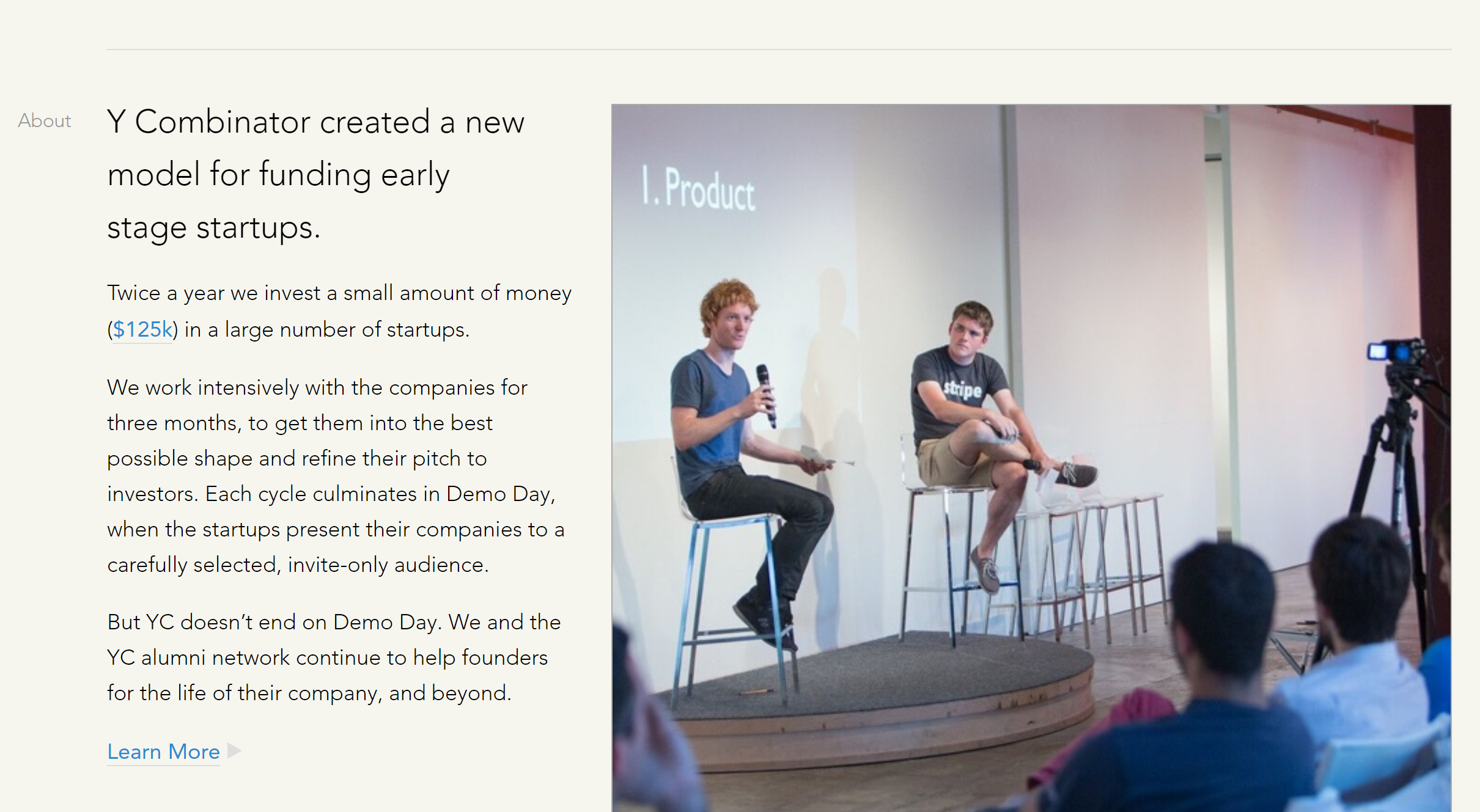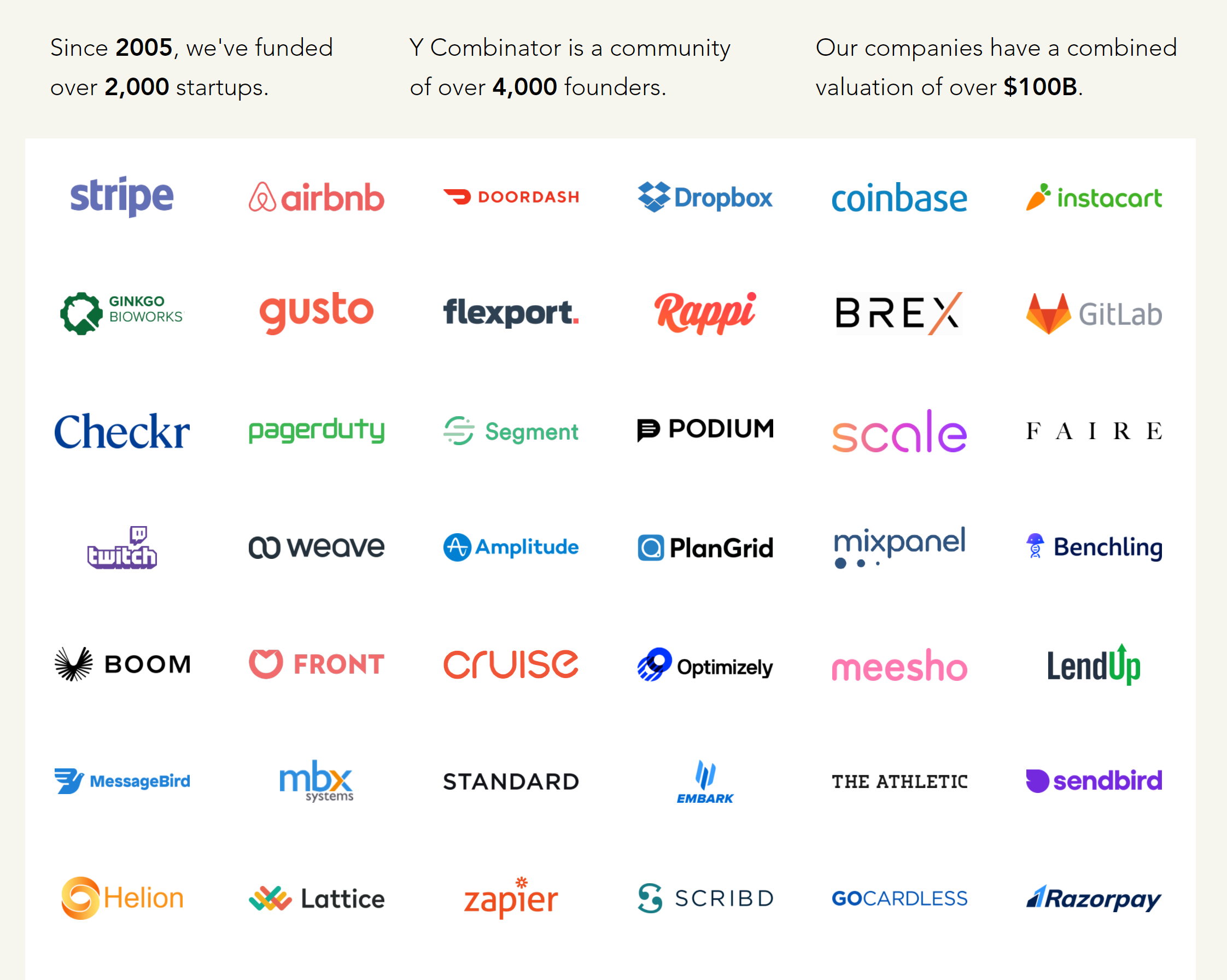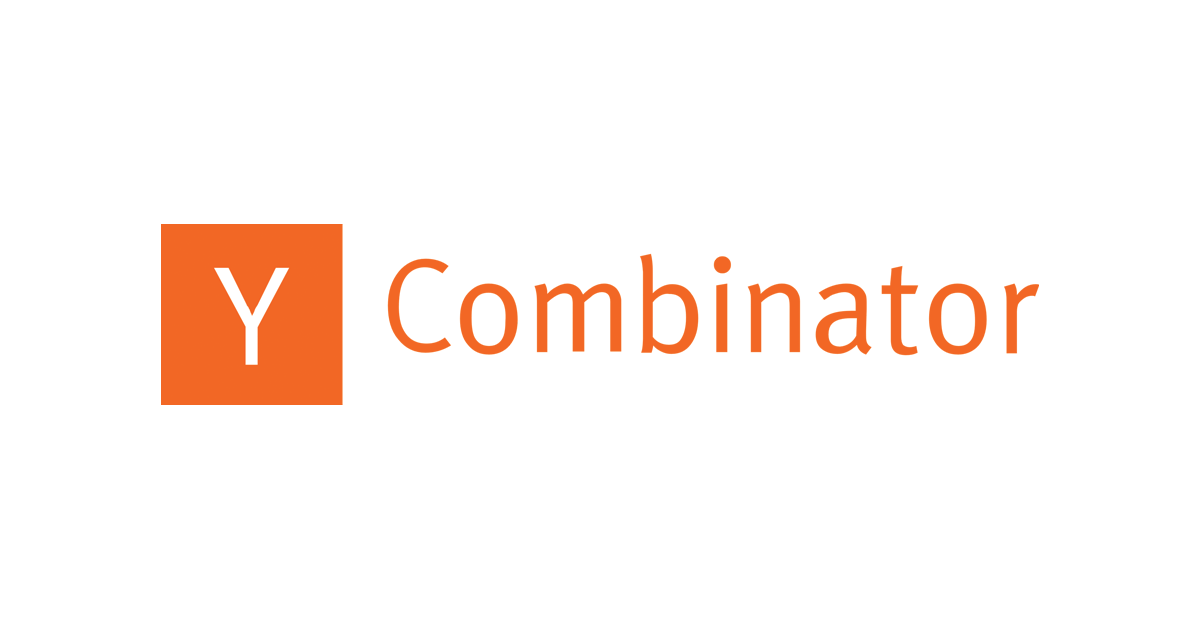Y Combinator Start-up school aims to accomplish the following:
- Encourage and inspire people to consider starting a company as a way to positively impact the world.
- Teach people how to start a startup, and equip them with the resources and tools to help prepare them now and in the future.
- Build a community of entrepreneurs who can encourage, teach and support one another.

There are three primary stages of the start-up process that this program helps founders with:
Stage 1
You are in the process of validating your idea and building an initial product. You are talking to potential users about your idea.
Stage 2
You have built an MVP and may have some users. You are talking to these early customers, getting their feedback, and iterating.
Stage 3
You have a product with many active users. You are working on growing revenue/users/sales.
The program includes access to:
- Startup School’s library content and curriculum tailored to your startup stage
- Tools to track your company’s growth and progress
- A community of international founders through the Startup School forum
- Virtual group sessions every other week via online video
- A personalized dashboard to track your participation with Startup School
- Programming and resources from the Y Combinator team (previous courses have included live Q&A sessions, office hours with YC alumni, and AMAs with startup founders).
Some of the speakers in the program have been involved with some of YCombinator's incredible start-ups. The speakers draw upon their experience with some of these companies or their own entrepreneurial journey as well.



YC Start-Up School has provided me with invaluable tools and paradigms to help jump start my business idea in the right way. Learning about what makes a start-up successful and common-pitfalls for why they fail has opened up new perspectives for me. These program instructors have worked with countless start-ups of varying success so they are able to see patterns among start-ups and recognize what paradigms and strategies work and don't work.
Before this program, there was a lot more uncertainty about what to do but now I have a much clearer idea of the direction the company will take over the next couple of months. Learning about how to properly track progress, measuring key performance indicators, asking the right questions to the right customers, and what to include and not include for features in the product will be essential for pivoting in the coming months.
Lastly, a big takeaway was learning how to be completely honest with yourself about yourself and about the business. It may appear trivial at first but time and time again from what was emphasized was that if you become blind within your start-up. This happens from rooted biases, focusing only on optimism, smearing your KPIs, and more will only harm the business and yourself in the end. Being completely honest and learning the inevitable mistakes will make the key early pivoting in the right direction possible.